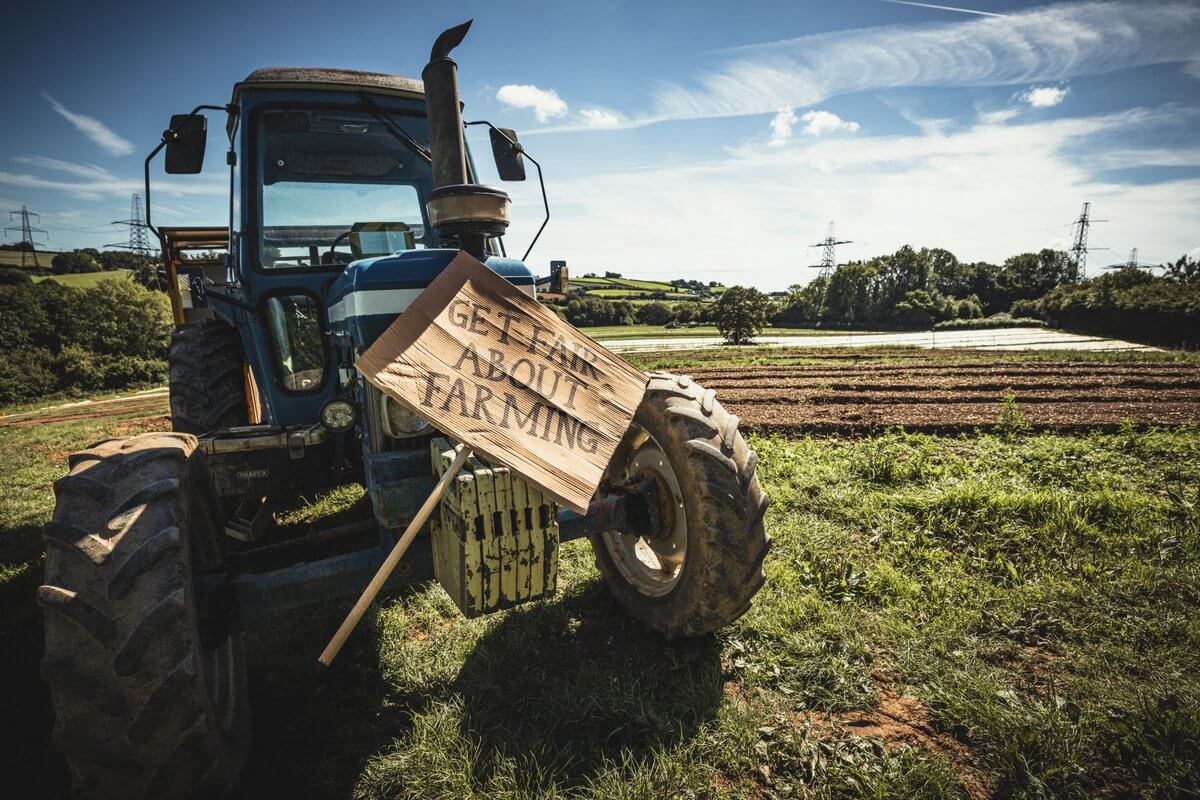English law is changing. By the end of the year, you won’t know whether you’re eating a genetically altered potato, head of broccoli, or tomato. So called precision breeding is coming to your table. Genetically edited crops won’t have to be labelled, they won’t be traceable, the consumer won’t have to be told, and you won’t have a choice.
“People increasingly ‘eat their values.’ They buy into free-range eggs, Fairtrade chocolate or pasture-fed meat. These are all methods of production. New regulation in England will mean that you won’t know whether you’re buying food that is natural or gene-edited,” says Pat Thomas, Director of Beyond GM, a UK-based civil society organisation.
Some say the new law will allow genetically modified organisms (GMOs) in through the back door. Others say that gene-editing is just traditional breeding on steroids. Yet the lines are now officially blurred, since the majority of oversight for such new breeds will only come from self-certification.
The public backlash against older style GMOs in the UK in the 2000s ensured that all GMOs remained strictly regulated and labelled. But since then scientists have been tinkering away with a new genetic modification technique called gene-editing, also called ‘precision breeding’. This is where new genes are diced and sliced into the DNA of a plant, creating a new variety.
The 2023 Genetic Technology Act codified this new category of GMO into law. New regulations, signed into the statute books in May, deregulate ‘precision bred organisms’ or PBOs. They will soon be exempt from the food and environmental safety requirements needed for other types of GMOs, in order to accelerate their use in farming and food.
This lack of oversight is why Beyond GM, is calling for a judicial review of this legislation. They are now crowdfunding £85,000 to pay for the campaign’s legal costs as they challenge the UK government on the rollout of gene-editing.
They are asking for more rigorous environmental and safety assessments, as well as a meaningful public consultation. This includes labelling and full traceability from field to fork. As we went to press, they are two thirds of the way there with funding. More help is needed.
“The crowdfunding closes in two weeks’ time and if we don’t reach our goal we will not be able to hold the government to account,” stresses Thomas.
Breaches our human rights
The organisation’s legal team has identified potential illegalities in the new regulation. These include breaches of the Human Rights Act, which makes clear that we all have a right to live according to our beliefs and be aware of what we’re eating. There is also the Aarhus Convention, which states that citizens need to play a role in decisions around things like genetically edited crops. Then there is the Habitats Directive.
“This is particularly important because farmland in England overlaps with many Special Areas of Conservation and Special Protection Areas. We don’t know how these gene-edited organisms might affect ecosystems in these areas. The government hasn’t taken this into account either,” details Thomas.
Beyond GM have also identified areas of overreach where the act goes beyond what Parliament has authorised, such as preventing any safety testing, which could reveal problems with these new organisms.
“The outcome that we want before November when the regulations come into force is for them to be quashed. We want a new process put in place that includes a complete impact assessment, which the government has never performed. It has not looked at the impact on organic farmers. It has not looked at the impact on consumers or the environment,” explains Thomas.
Beyond GM has also set up a dedicated website for the legal action, “Stop Hidden GMOs”, which is championed by some big names in business, including potential co-claimants, such as Doves Farm, Daylesford Organic, Planet Organic and Hodmedod’s, as well as supporters such as the Soil Association and Riverford.
Organic regulations
There remains an important exemption in the form of organics, though. Because genetically edited products are not permitted in organic production, and there is a stringent certification process “there will be a mechanism in place for organic farmers to ensure their seeds are not PBO (precision bred organisms) and they will be required to check that anything they buy is not PBO,” says Sarah Hathway, Head of Technical at the Soil Association. “We don’t know what form the list of PBOs will take yet so we’ll have to instruct organic farmers where it is and how to access it, which lays a lot of extra legwork and likely expense at the organic farmer’s door – something we’re furious about as if PBO were identified on labels, it would be easy to avoid them.”
“Any other non-organic farmer or grower will not be required by law to check the origin of their seeds or crops – which means that yes, we’ll have a sea change of produce filling our shelves and supermarkets, with citizens having no way of knowing whether or not they’re buying or eating PBO food,” says Hathway.
Hathway is also quick to clarify that “there are risks to organic production in cases where the organic farmers might use legally permitted non organic inputs, such as straw for livestock or non-organic plant waste in composts. This change in law will require organic farmers to prove that their non organic inputs are not PBO – which unlike other GMOs which have to be labelled and identified, will be hard and costly to do.”
Casts doubt on provenance
Organic producers, organisations, and consumers are up in arms because this could bring whole, gene-edited produce to consumers’ tables – that carrot, that head of lettuce or cabbage – which has never existed before in nature. Certain traits may have existed in separate plants, but gene-editing will still create novel organisms. Critics say it could result in the introduction of allergens and toxins into the food chain.
Such technology may also create doubt about the provenance of what we grow and lead to a fundamental breach of public trust in our food and farming system. With no labelling there is potential for speculation and doubt.
“These new plants are being designed as whole foods that we can eat, and that brings a whole different level of risk profile to the food. It’s not being processed. it’s a whole tomato, it’s a whole potato. People should be aware that they are going to soon be eating something that has never existed before,” explains Thomas.
Eight out of ten people in the UK want to see all GMOs, including precision bred GMOs, labelled, according to a YouGov poll. Surely consumers should know whether they are eating gene-edited crops or not?
Beyond GM’s judicial review isn’t looking to ban gene-edited crops, instead they are calling for greater transparency, openness and a more precautionary approach to their release. When novel and largely untested technologies that affect consumers, supply chains and the environment are released then due diligence should be done. Beyond GM has said the bill is also not robust enough in terms of consumer protection.
At a time when concerns over ultra-processed food, health and access to more nutritious, natural produce are in the headlines, labelling and traceability are extremely important. Concerns around food safety and farmer dependence on big global agribusinesses who are heavily investing in gene edited crops also needs to be addressed.
The new law now opens the door to gene-edited farm animals. However, new votes in Westminster will be needed for this to happen. Interestingly, the Welsh, Scottish and Northern Irish governments are not allowing the commercial use of gene-editing. This could create issues around the use of gene-edited food products in the devolved nations.
This new law is also currently at odds with the European Union who still does not allow gene-edited crops, although this may change. It means that it could raise concerns over British food exports to Europe.
The bill was originally proposed by the Conservative government in a post-Brexit move to regain regulatory control from the EU. Interestingly, David Zeichner, the Minister for Food Security and Rural Affairs questioned the bill when he was in opposition.
“We must recognise that any new technology also carries risks: risks of unintended consequences; risks of technology being misused; and risks of commercial pressure being exerted in ways that might not be for the benefit of the wider public,” said Zeichner. This remains true, but what will be done about it remains to be seen.













Like so many things being changed by politics these days we don’t have clear oversight of the politicians actions nor the pressures being apllied rightly or wrongly by lobbyists on those politicians upon whom we have to rely. I wish GM luck in being able to at least present their argument fully and to the right level of politics so that the subject may be aired fully without being squeezed out of sight by those with the financial clout to do so.